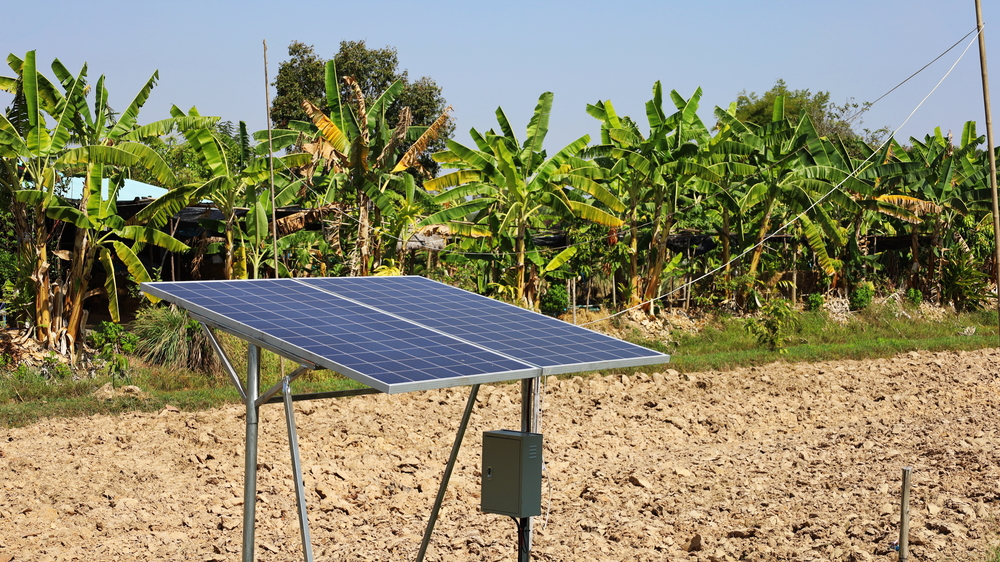Implementation of the initiative will get under way in the first quarter of 2023, and take a year and a half to complete.

San Jose, 26 October 2022 (IICA). The Spanish Agency for International Development Cooperation (AECID) and the Inter-American Institute for Cooperation on Agriculture (IICA) have launched an initiative to promote the use of renewable energies and energy efficiency in rural areas of Bolivia, Colombia, Costa Rica, and Guatemala.
The project, entitled “Capacity building in the use of renewable energies and energy efficiency in rural communities” (or “Rural Energy” for short), will last a year and a half, with implementation getting under way in the first quarter of 2023.
The initiative is designed to support the twofold objectives of reducing emissions and improving the competitiveness of the agriculture sector in the four countries selected.
The beneficiaries will be 20 grassroots organizations of small farmers, rural dwellers with limited access to technology and electricity, areas with low human development indices, indigenous communities, displaced groups, veterans, minorities with low levels of education, as well as beneficiaries of previous projects in which IICA and AECID were involved.
The official launch, held at IICA headquarters in San Jose, was attended by Spain’s Ambassador to Costa Rica, Eva Martínez; IICA’s Chief of Staff and the Institute’s Representative in Costa Rica, Miguel Ángel Arvelo; and AECID’s General Coordinator in this country, Rafael García; as well as other senior officials of the two organizations.
Under this project, low-cost renewable energy and energy efficiency technologies will be implemented and transferred to grassroots groups in rural areas. The initiative will also promote projects designed to improve the competitiveness, productivity, and quality of life of beneficiaries, and give them the skills they need for their operations and for scaling up purposes (i.e., to transfer them to other beneficiaries).
“This project has all the characteristics required for it to be successful, the kind that Spain and AECID aim and like to support. By strengthening producer organizations, it will contribute to the development of agriculture and help guarantee food security. Increased efficiency in agricultural production will contribute to the organizations’ socioeconomic development, while at the same time respecting the environment by promoting emissions reduction. It also entails the rollout of technology, which is one of the guarantees of sustainable development,” commented Ambassador Martínez.
“We are delighted to announce the start of this extremely useful, multipurpose project, whose results will also mark a step forward in the areas of energy, agriculture and rural areas, as well as in the concept of the circular economy,” Miguel Ángel Arvelo observed.
Rural Energy: beneficiaries, impact zones and results
The Rural Energy project calls for an investment of 500,000 euros (approximately USD 489,295). AECID is providing the funding, while IICA is responsible for the technical and financial oversight. The project also includes a strategic partnership with the Biomatec Foundation for the implementation of the energy solutions that will be installed in the countries.
“The project is important for those of us involved in environment and climate change, energy efficiency and renewable energy initiatives in many Latin American countries. The big challenge is to ensure that all the technology being developed reaches the rural areas,” remarked the General Coordinator of AECID in Costa Rica, Rafael García.
“We disseminate knowledge and technologies that under this project will be used to achieve energy efficiency and renewable energy. The foundation recognizes the need for much more specific and direct technology transfer to grassroots groups and communities, in order to generate a multiplier effect,” explained the Director of the Biomatec Foundation, Cindy Torres.
According to IICA’s Project Management and Agribusiness Specialist in Costa Rica, Kenneth Solano, the main results expected include the implementation of 28 renewable energy and energy efficiency projects, the training of 56 people in technology management and maintenance, and modules for mentoring 40 technical officers.
More information:
Institutional Communication Division.
comunicacion.institucional@iica.int











